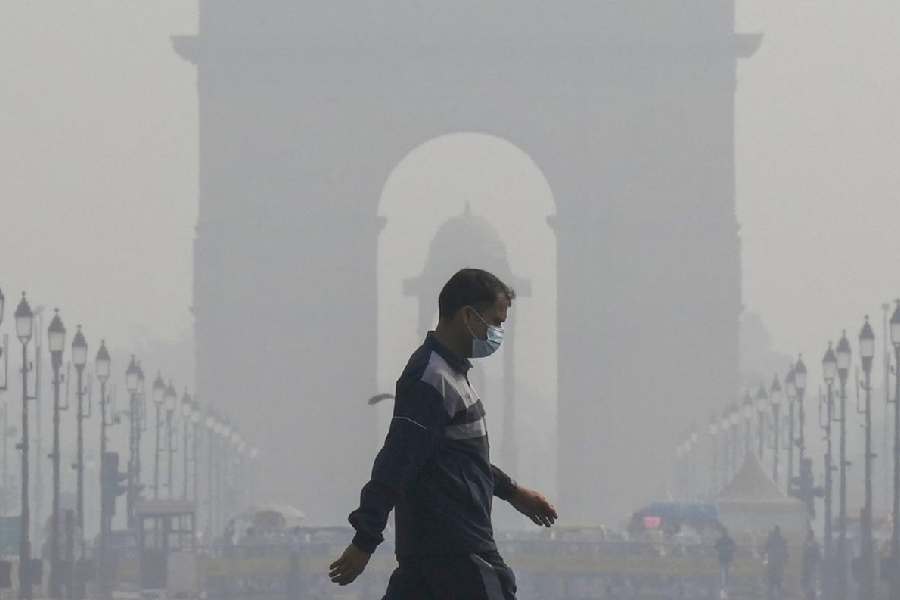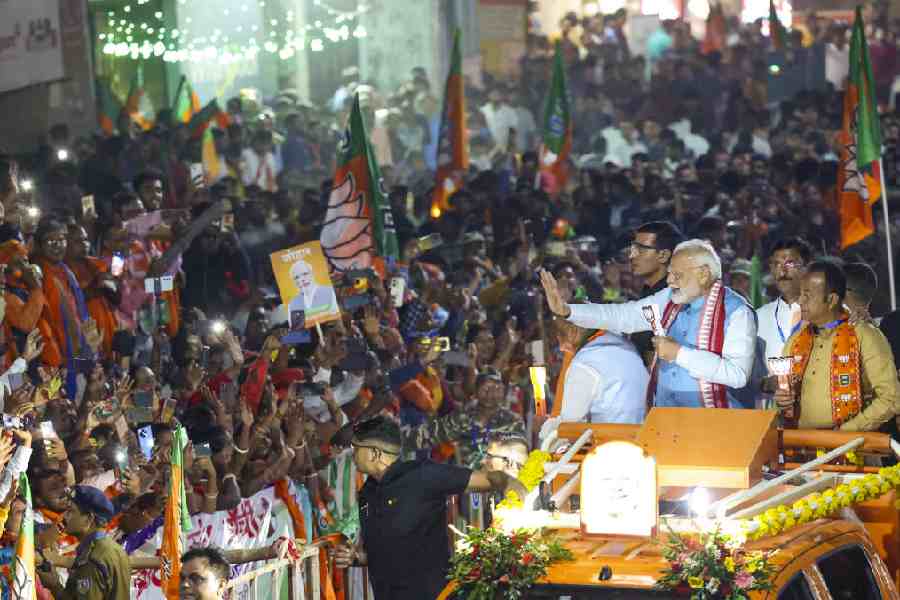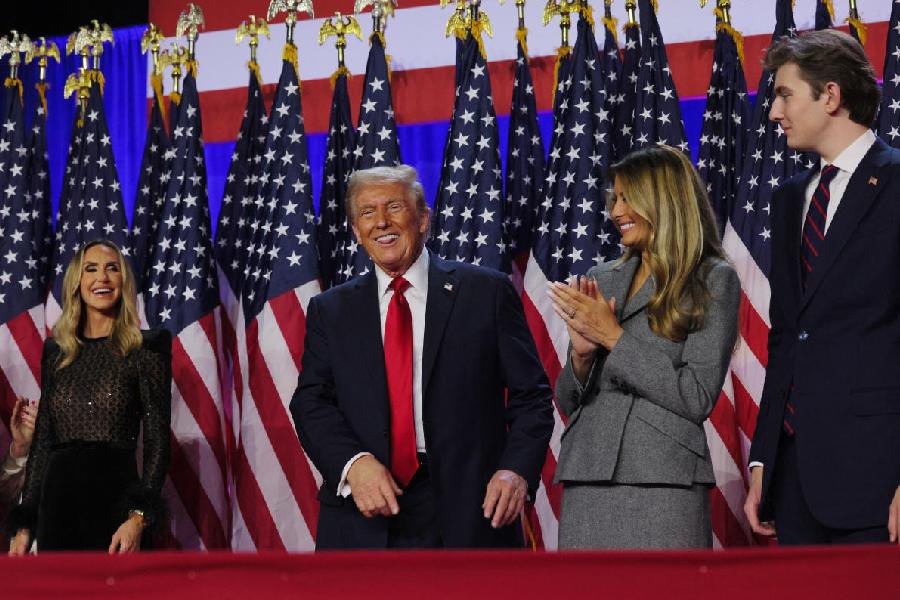 Wednesday, 13 November 2024
Wednesday, 13 November 2024
 Wednesday, 13 November 2024
Wednesday, 13 November 2024
As the Cold War wound down almost four decades ago, a top adviser to reformist Soviet leader Mikhail Gorbachev warned the West that “we are going to do the most terrible thing to you. We are going to deprive you of an enemy.”
In the celebrations of the triumph of Western liberal democracy, of free trade and open societies, few considered how disorienting the end of a binary world of good and evil would be.
But when the spread of democracy in newly freed societies looked more like the spread of divisive global capitalism, when social fracture grew and shared truth died, when hope collapsed in the communities technology left behind, a yearning for the certainties of the providential authoritarian leader set in.
“In the absence of a shared reality, or shared facts, or a shared threat, reason had no weight beside emotion,” said Nicole Bacharan, a French political scientist. “And so a dislocated world of danger has produced a hunger for the strongman.”
A different Russia, briefly imagined as a partner of the West, eventually became an enemy once more. But by the time it invaded Ukraine in 2022, disillusionment with Western liberalism had gone so far that President Vladimir Putin’s tirades against the supposed decadence of the West enjoyed wide support among far-right nationalist movements across Europe, in the United States and elsewhere. Western allies stood firm in defense of Ukrainian democracy, but even that commitment is wobbling.
The curious resurrection and resounding victory of Donald Trump amounted to the apotheosis of a long-gathering revolt against the established order. No warning of the fragility of democracy or freedom, no allusion to 20th-century cataclysm or Trump’s attraction to dictators, could hold back the tide.
If Russia was humiliated by the collapse of its communist imperium, as Putin has long asserted, it now reveled in the victory of Trump, who is dismissive of climate change, big on male virility and who argues, like Putin, that the West of networked elites is the place where family, church, nation and traditional notions of gender go to die.
More dangers abound than when Trump won in 2016. In a world of rival powers where the post-1945 order seems largely dead, wars rage in Europe and the Middle East. They spread and efforts to end them have proved ineffectual.
North Korea, a nuclear power whose troops now bolster Russian forces against Ukraine, is drawn in. Iran’s long conflict through surrogates with Israel escalates into direct exchanges of missiles. Loose talk of nuclear war resurfaces as a paralyzed United Nations Security Council looks on. “The Sleepwalkers” was the title of Christopher Clark’s book on the onset of World War I. They appear to many to be afoot once more.
To this mire will now be added the chaotic, impulsive, high-risk approach to foreign policy described with near unanimity by Trump’s top aides during his first term, as well as his expressed contempt for NATO and the European Union, anchors of postwar Western security and stability, and his threats of confrontation with China in the form of punishing tariffs. A turbulent world and a turbulent personality make for a dangerous mix.
During the election campaign, Trump made much of the fact that the European and Middle Eastern wars erupted after his first presidency and tried to portray Kamala Harris, the Democratic candidate, as the warmonger. His adviser Stephen Miller warned on the social platform X that a Harris victory would mean, “We invade a dozen countries. Boys in Michigan are drafted to fight boys in the Middle East. Millions die.”
These were totally unfounded claims. But many Americans believe that Trump, at heart a businessperson for whom foreign policy is merely a matter of transactional resolve, will usher in an era of prosperity incompatible with the turbulence of war. During his first term, he forged the Abraham Accords normalizing relations between Israel and four Arab states.
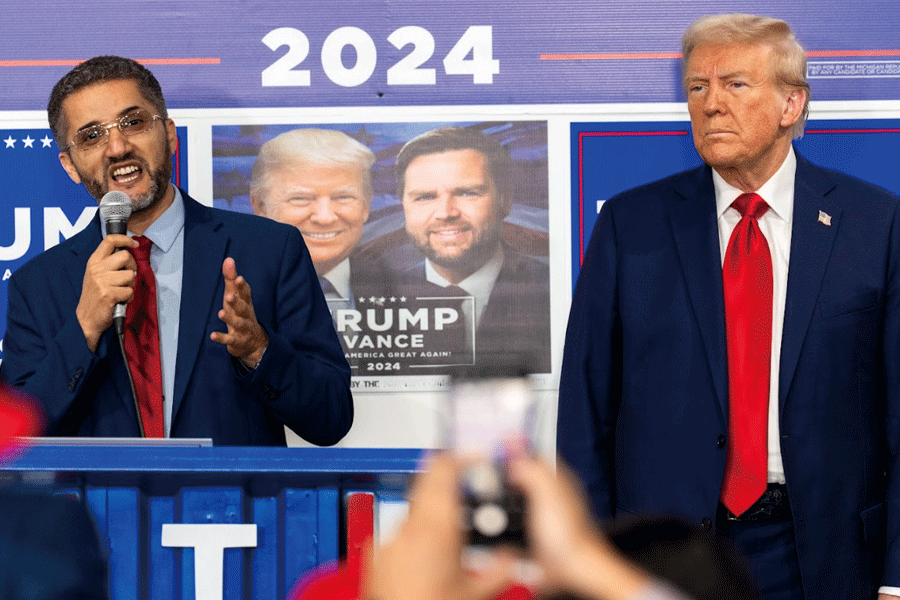
Europe, however, is worried. Thomas Bagger, state secretary of the German Federal Foreign Office, said that “the shock is more profound because this time the election of Trump is not an accident but a clear expression of what America is and what it wants.”
Speaking as Germany’s coalition government collapsed and uncertainty loomed before a general election next year, he added that Trump’s victory was particularly troubling because “the German Federal Republic is a creation of the United States of America, the fruit of postwar enlightened American policy.”
Trump said this year that he would encourage Russia to do “whatever the hell they want” to any NATO members not meeting the alliance’s targets for spending on defense, and has suggested he would cut back on critical American support for Ukraine.
For the international system, a Russian victory in Ukraine would affirm a principle of might over right, and for Europe it would pose a direct threat.
Europe is more divided and has moved rightward over the past eight years. This was aptly symbolized by a meeting of European leaders Thursday in Budapest, where Prime Minister Viktor Orban of Hungary, in a message on X, greeted Trump’s reelection as a “much needed victory for the world.”
Orban’s illiberal model, which has severely curtailed press freedom and the independence of the judiciary, has been hailed in Trump’s entourage as a possible template. Trump has called Orban a “fantastic” leader.
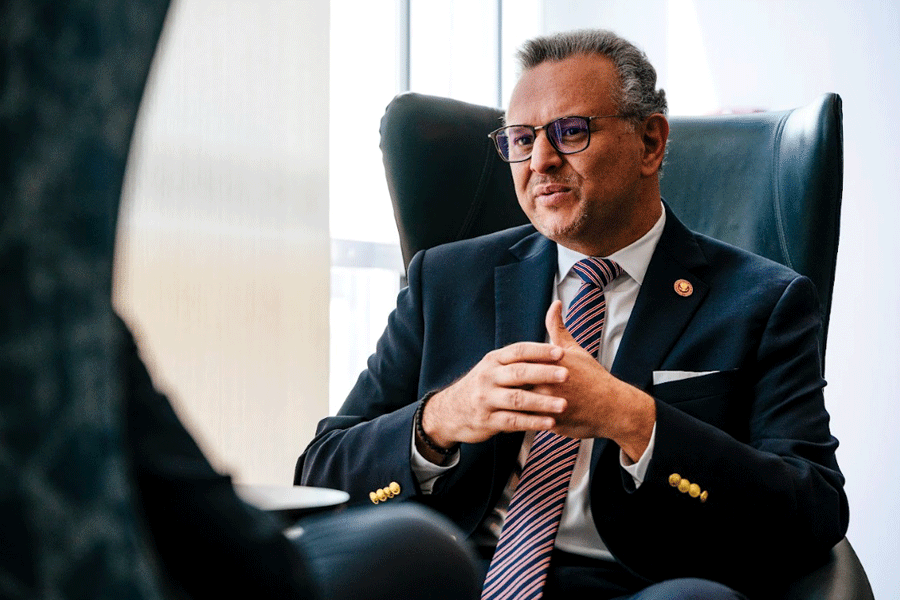
The assembled European leaders, prodded by President Emmanuel Macron of France, agreed that the continent should take more responsibility for its defense given the unpredictability of Trump’s America. But they were divided on sustained support for Ukraine, which Orban opposes.
“There is no possible good outcome in Ukraine today,” said Bacharan, the French political scientist. “Trump wants the war over and, with Putin, will do whatever it takes.”
With nationalist and anti-immigrant political currents strong throughout the continent, Trump will have more levers than during his first term with which to undermine the 27-nation European Union. The possibility that Europe will splinter, with each nation cutting its own deals with Washington, appears real.
“As a nation, we don’t have a way to deal with a world where every country is only looking out for itself,” Bagger said of Germany. “We nurtured the idea of an international community because it was the only post-Nazi way to think of ourselves. So where we turn in Trump’s world is unclear.”
Many nations are asking themselves similar questions. Antonio Gramsci, the Italian political philosopher, wrote in 1930 of a world in which “the old is dying and the new cannot be born.” Trump could be returning to power in another such moment. He is not responsible for the breakdown of the Western-dominated postwar order or the diminishing magnetism of democracy for some as compared to China’s autocratic growth model, but he will have to deal with the consequences.
The BRICS group of emerging market nations is now a powerful counterweight to the West, as illustrated at its meeting last month, hosted by Putin. Entrenched Russian and Chinese hostility toward the United States will complicate Trump’s every foreign policy endeavor.
India, at once a BRIC member with close ties to Russia and a close friend of the United States, enjoyed good relations with Trump during his first term. Jawed Ashraf, the Indian ambassador to France, said he expected that to continue.
But Ashraf added: “We are in a state of the world where people are seeking new answers. There’s a lack of belief in the future. Economic models unable to deliver, unfettered social media, and global volatility lead to taking it out on immigrants and questioning of democratic systems.”
Trump’s victory was part of this wider phenomenon. In societies atomized by the overwhelming pace of technological change, and marked by growing inequality, Trump had simple answers that resonated.
Those answers were the border and the pocketbook, the former too porous and the latter too empty. He would fix both.
“It was the fight-fight-fight backlash,” said Pascal Bruckner, a French author and philosopher, alluding to Trump’s words after he narrowly survived an assassination attempt in July. “No more complex diagnosis, no more delicate decisions.”
“God spared my life for a reason,” Trump said at his victory speech early Wednesday. The possibility of a sense of divine mission, backed by a clear electoral mandate, could make the likelihood of balanced policy more remote.
Trump has not moderated in almost a decade since embarking on his first presidential campaign. “People want strength,” he said then. “We’re going to be so tough and so mean and so nasty,” he said. He got the blood up. Many dismissed him as a buffoon. But with his uncanny political antennae, attuned to humanity’s fears and resentments, he was onto something.
China was rising; American power ebbing; Afghanistan and Iraq were graveyards of American glory; millions of struggling Americans felt forgotten or invisible; and the establishment had not understood the fact-lite theater of the contemporary world.
It was the perfect storm for rabble-rousing. Far from an anomaly, Trump now looks like an inevitability, the answer, not once but twice, to the shattering of hopes for liberal democracy that accompanied the fall of the Berlin Wall.
The New York Times News Service
